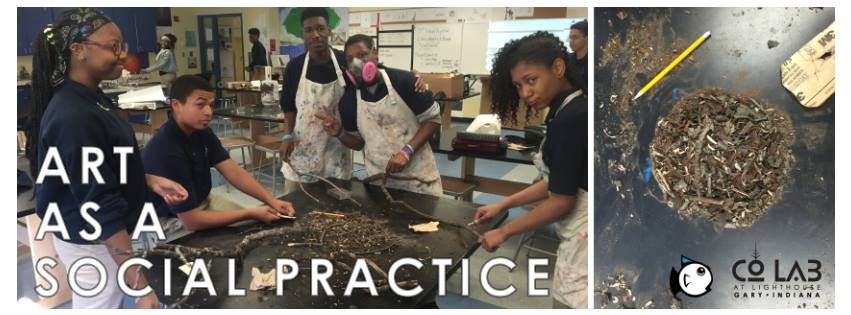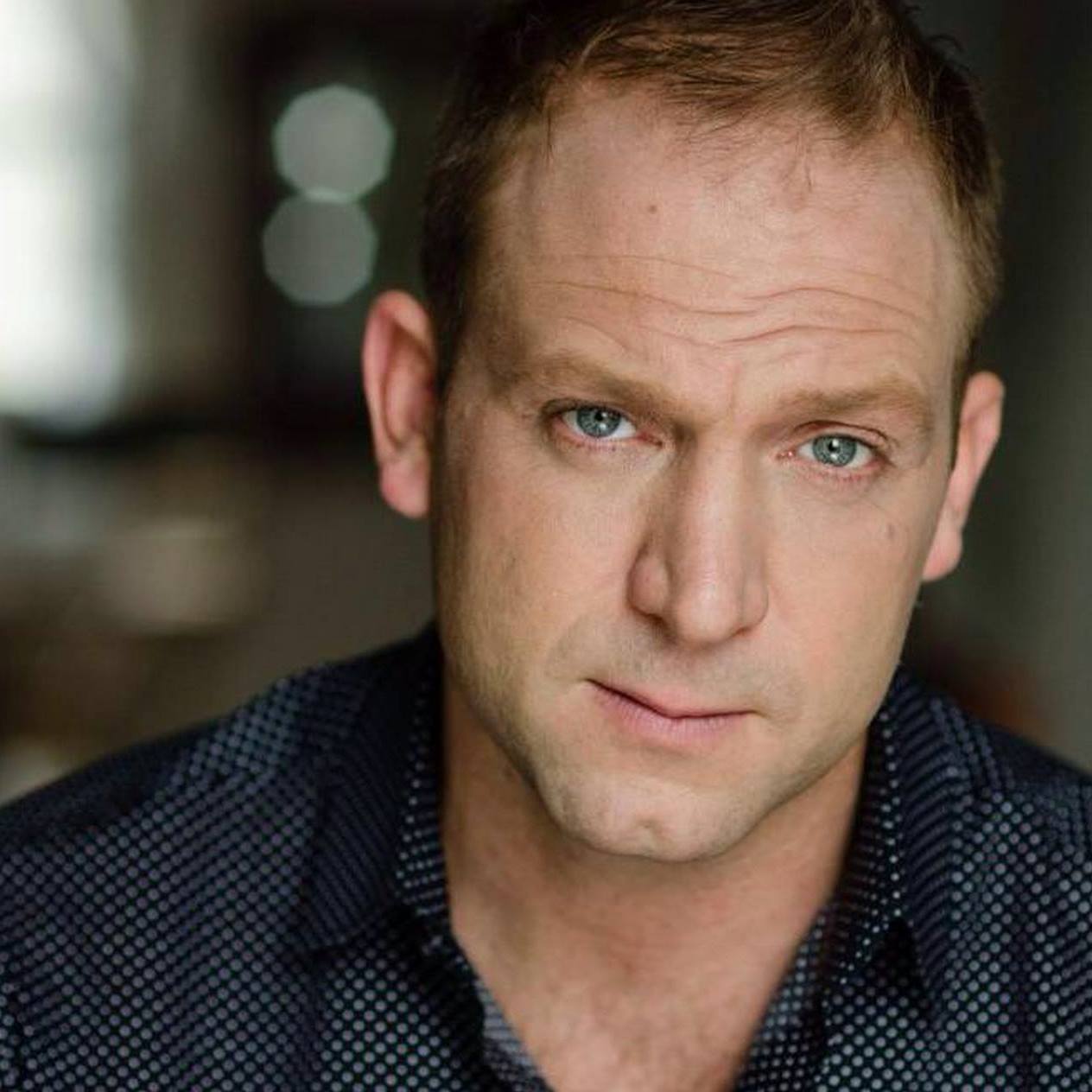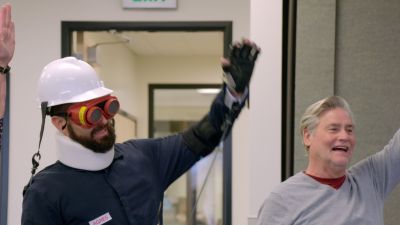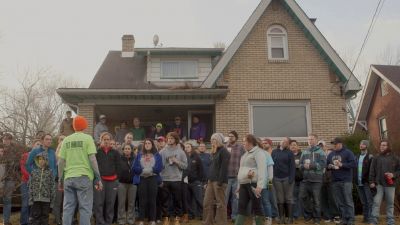
Tyler Bush's students at work in their Gary, Indiana school. (Image courtesy of Tyler Bush)
I teach in a steel town.
A historic location of America’s industrial past.
For many, Gary, Indiana’s crumbling landscape is an American tragedy. Any political economist would point toward globalization and the evolution of transnational capitalism as the real antagonist in Gary’s fall, no different from Flint, Michigan or Youngstown, Ohio or Aliquippa Pennsylvania. I would agree with that empirically, but if you ask the locals, Gary’s decay as a community is still a story very much associated with race and class in America. Perhaps both these views are correct. As with all things dysfunctional, the causes are multi-layered and systemic, and can’t be explained by any lone scapegoat offered up by bar room or barbershop pundits.
We study the past to inform how we might improve the now. I study America’s industrial past to unpack and challenge America’s fixation on greatness and meritocracy. As a filmmaker, I create stories that agitate working people into thought, and as a teacher in a marginal community I often wax poetic on the importance of knowing the worth of one’s labor.
I’m currently teaching design fundamentals and visual art at a charter school serving impoverished students in Gary, Indiana. The education system, like the society it is supposed to prepare citizens for, is in crisis. But in every crisis, there is an opportunity. In a data-driven world, liberal education has fallen out of vogue. But it is needed now as much as ever. The purpose of a liberal education, after all, is to raise the collective value of our human efforts, and to promote our most cherished goals: life, liberty, the pursuit of happiness.
I recognize the need for data; we must have metrics to understand flaws in our educational system. However, the highest function of public education in a democracy is to create citizens who think critically and lead an active life of service, performing duties that improve the common good. In other words, we educate each generation to build on the accomplishments of the previous one. Where data manages, craft gives agency and a connection to our humanity.
So let’s forget how we can make America Great Again. Let’s start by making America good for once — and we need to start with our education system. We need to worry less about companies coming back to give us jobs, and start creating 21st-century learning environments that teach civility and service, and address the moral imperative of our time: We need to begin stitching our social fabric back together through making things, making mistakes and collaborating with one another.
When my students find value in the process of creation, and begin to spend time honing a skill, the distraction of their cell phones becomes less of a challenge for me. As their desire grows to see something finished and whole that they were responsible for, they are transformed into better human beings capable of caring about something larger than their latest selfie. When two or more students do this work together their self-confidence grows as they recognize how their unique talents improvise in concert with each other amplifying opportunities for academic success. Solidarity awakens from its slumber.
We need to find our way back to collaborating collectively and learning how to make things — and to make things well. Without a doubt, it’s still very important to gauge a student’s development through some sort of standard testing, but that isn’t the only form of human worth or value.
In our poorest American communities, our education system takes the form a perverse semi-feudal system. The promise of a digital society is that it can allow information can be shared, and the collective worth of all human efforts can be harnessed for the common good over profit. In today’s post-industrial America, a growing underclass is being marginalized as consumers of technology rather than the builders of a new society. Our schools are test-taking factories where we are not teaching tangible skills and we are not creating citizens. My school has a no-cell-phone policy, which is enforced as strictly as logistically possible.
Why? Because in an information society, the underclass needs to have access to the means of media production, to be trained and educated on how to use this technology for the common good rather using it simply as a means for consumption. Applications like Snapchat or games like Angry Birds may provide a welcome release from the tensions of the world around us, but do little in promoting the working-class body politic.
Removing trades as a component of our schools disempowers the working classes and turns students into test-taking automatons, not creative citizens capable of building a democratic society. When this process happens on a generational level, as it has in my region for both working-class whites and blacks, we are left with an angry society filled with disillusionment and an entire class lacking any clear identity other than tribalism.
The working- and middle class must begin to think critically about how we use the tools of modernity in our educational systems. Digital media literacy and media production, along with a reinvented pedagogy of civics, would begin to produce creative citizens capable of reinventing a stagnant nation, not simply tuition-paying customers for branded institutions. I ask, how could teaching computer programing, graphic and web design at my charter school lead to our students having their own form of community-based journalism? I believe coursework like this would inspire a school newspaper or a student council that in turn would promote the form of peer self-government our school so urgently wants to create.
One thing I know in all certainty is that the hope of this nation is in good hands. My students in Gary are filled with great optimism about what the future holds. Despite all the economic realities and lack of local job opportunities, this is a group of creative, strong-willed workers and thinkers who embrace the struggle and embody free thinking. It’s time they put down the toys and pick up the tools that will reinvent our community.




